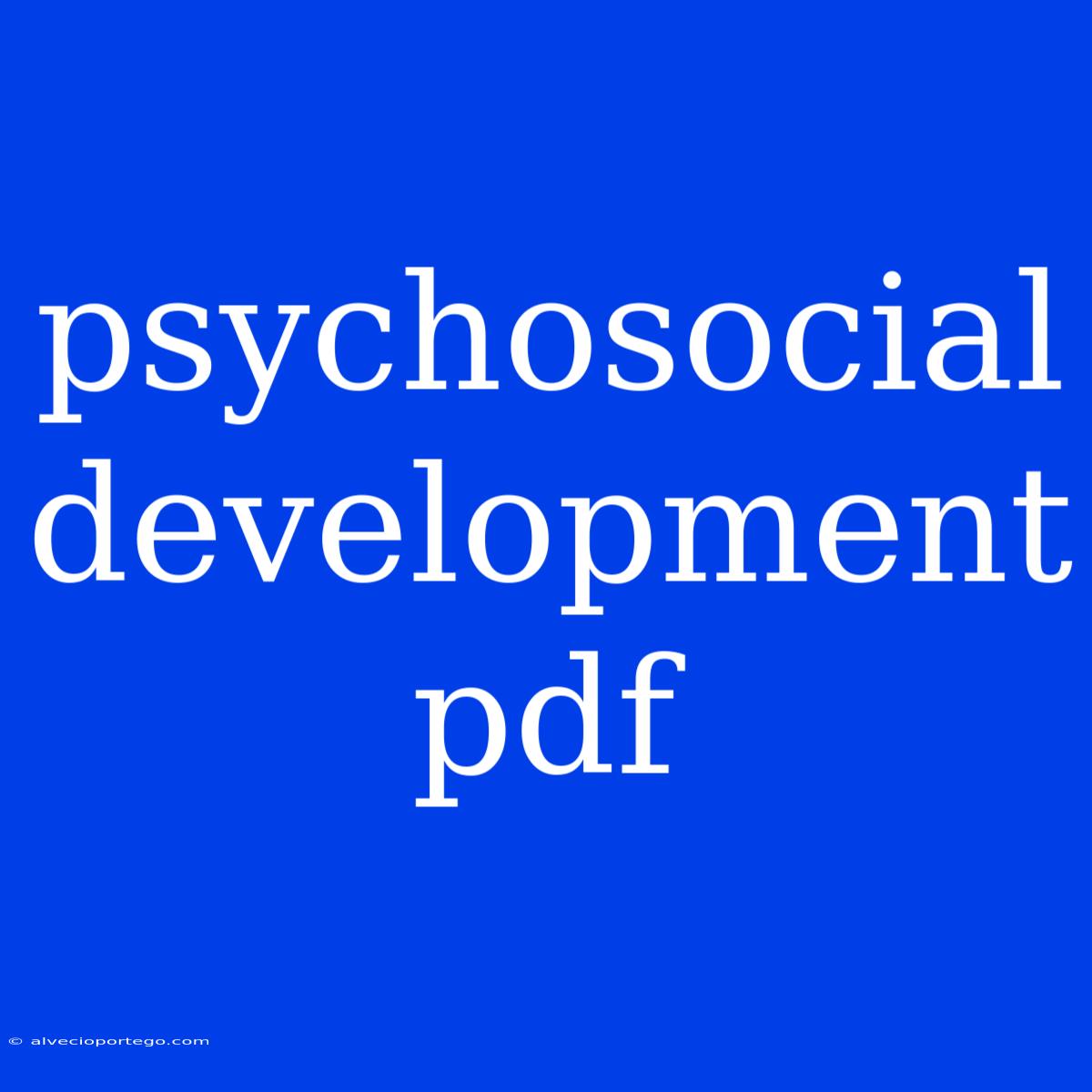Psychosocial Development: A Comprehensive Guide
Introduction
Psychosocial development encompasses the intricate interplay between psychological processes and social interactions throughout an individual's lifespan. It explores how individuals navigate the complex world of emotions, relationships, identity, and social roles, shaping their personality and overall well-being. This comprehensive guide delves into the key theories, stages, and factors that influence psychosocial development.
Key Theories
1. Erikson's Stages of Psychosocial Development:
Erik Erikson proposed eight stages of psychosocial development, each characterized by a unique psychosocial crisis that individuals must resolve to progress to the next stage. These stages are:
a. Trust vs. Mistrust (Infancy): The foundation of trust is established through consistent caregiving. b. Autonomy vs. Shame and Doubt (Early Childhood): Children develop a sense of self-reliance and independence. c. Initiative vs. Guilt (Preschool): Children learn to take initiative and explore their surroundings. d. Industry vs. Inferiority (School Age): Children develop a sense of competence and mastery in their skills. e. Identity vs. Role Confusion (Adolescence): Adolescents grapple with forming a stable sense of self. f. Intimacy vs. Isolation (Young Adulthood): Young adults navigate forming meaningful relationships and commitments. g. Generativity vs. Stagnation (Middle Adulthood): Individuals find purpose and contribute to the next generation. h. Ego Integrity vs. Despair (Late Adulthood): Older adults reflect on their life and find meaning and acceptance.
2. Vygotsky's Sociocultural Theory:
Lev Vygotsky emphasized the importance of social interaction and cultural influences on cognitive and psychosocial development. He proposed the concept of the Zone of Proximal Development (ZPD), where learning is most effective when individuals are supported by more knowledgeable others.
Factors Influencing Psychosocial Development
1. Family and Peers:
- Family dynamics: Parenting styles, family structure, and sibling relationships significantly shape early psychosocial development.
- Peer groups: Peer interactions provide opportunities for social learning, identity formation, and peer pressure.
2. Culture and Society:
- Cultural norms and values: These influence expectations, behaviors, and beliefs about gender roles, family structures, and social hierarchies.
- Social class and socioeconomic status: These factors influence access to resources, educational opportunities, and social support.
3. Individual Differences:
- Temperament: Innate personality traits, such as activity level, emotionality, and sociability, influence how individuals interact with the world.
- Genetics and biology: Biological factors, including hormonal changes, neurological development, and genetic predispositions, contribute to psychosocial development.
Importance of Psychosocial Development
- Healthy social relationships: Successful psychosocial development fosters strong, meaningful relationships.
- Positive self-concept and identity: A well-developed sense of self contributes to self-esteem, confidence, and resilience.
- Emotional regulation: Understanding and managing emotions is crucial for healthy psychosocial functioning.
- Effective communication and interpersonal skills: Strong social skills enhance communication, problem-solving, and conflict resolution.
Applications of Psychosocial Development
- Parenting: Understanding psychosocial stages allows parents to provide age-appropriate support and guidance.
- Education: Teachers can create learning environments that cater to students' psychosocial needs.
- Therapy and Counseling: Psychosocial frameworks guide therapists in understanding and addressing mental health issues.
Conclusion
Psychosocial development is a lifelong process that shapes our personalities, relationships, and overall well-being. By understanding the key theories, stages, and influencing factors, we can better navigate this journey, fostering healthy development and a fulfilling life.

